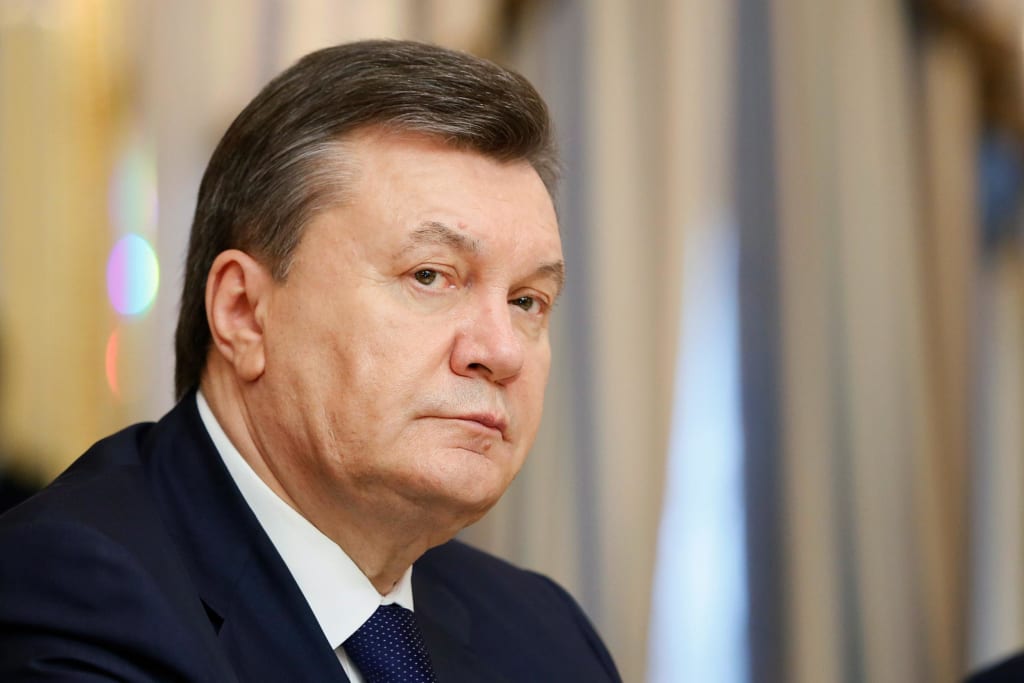Ukraine's Missing Millions: The Disappearance of $40 Billion in State Assets
A Look at the Corruption and Mismanagement That Led to Ukraine's Economic Crisis

In recent years, Ukraine has been plagued by corruption scandals and economic instability, with billions of dollars in state assets disappearing under mysterious circumstances. The disappearance of these funds has contributed to Ukraine's ongoing economic crisis, with the country struggling to make ends meet and meet its obligations to international creditors.
According to reports, an estimated $40 billion in state assets have disappeared since Ukraine gained independence from the Soviet Union in 1991. These assets include everything from state-owned enterprises to natural resources and infrastructure projects, and the disappearance of these funds has had a devastating impact on Ukraine's economy.
One of the main drivers of this corruption has been the lack of transparency and accountability in Ukraine's political system. For years, politicians and officials have been able to abuse their power and divert public funds for personal gain without fear of prosecution or consequences.
In addition to the lack of accountability, Ukraine has also been plagued by weak institutions and ineffective governance structures. This has made it difficult for authorities to investigate corruption and hold those responsible accountable.
The disappearance of state assets has had a particularly devastating impact on Ukraine's energy sector. The country has long relied on imports of natural gas from Russia, which has often used the supply of gas as a political tool. The loss of state-owned energy assets has made it even more difficult for Ukraine to become energy independent and secure its energy supplies.
The corruption and mismanagement of state assets have also had a profound impact on Ukraine's international standing. The country has struggled to secure financial assistance from international lenders and has faced a difficult economic situation for years.
To address the issue of missing state assets and corruption, Ukraine must take significant steps to reform its political system and strengthen its institutions. This includes implementing measures to promote transparency and accountability, such as establishing an independent anti-corruption agency and creating a more effective justice system.
In addition to these reforms, Ukraine must also take steps to diversify its economy and reduce its dependence on natural resources. This can include investing in alternative energy sources, promoting innovation and entrepreneurship, and developing new industries to create jobs and stimulate economic growth.
Former President Viktor Yanukovych played a significant role in Ukraine's corruption and mismanagement during his presidency from 2010 to 2014. Yanukovych's administration was accused of widespread corruption, and his government was seen as deeply corrupt and opaque.
One of the most significant ways Yanukovych contributed to corruption in Ukraine was through his close ties with wealthy oligarchs. Yanukovych was widely seen as a puppet of the country's richest businessmen, who were accused of using their wealth and influence to manipulate the political system and enrich themselves at the expense of ordinary Ukrainians.
Yanukovych himself was also accused of corruption and abuse of power during his time in office. In 2014, shortly after Yanukovych was ousted from power, documents were leaked showing that he and his family had amassed enormous wealth through dubious means. According to these documents, Yanukovych's family had controlled a network of offshore companies and bank accounts that had been used to funnel billions of dollars out of Ukraine.
In addition to his role in the country's corruption, Yanukovych also contributed to Ukraine's economic crisis. Under his presidency, Ukraine's economy suffered from mismanagement, weak institutions, and a lack of transparency. Many state-owned enterprises were privatized or sold off to oligarchs, contributing to the loss of billions of dollars in state assets.
Yanukovych's decision to reject an association agreement with the European Union in 2013 was also seen as a significant setback for Ukraine's efforts to reform and modernize. The decision was widely seen as a concession to Russia, which had sought to maintain its influence over Ukraine and prevent it from integrating more closely with Europe.
Overall, Yanukovych's presidency was marked by corruption, economic mismanagement, and a lack of transparency and accountability. His administration contributed to Ukraine's ongoing economic crisis and undermined the country's efforts to modernize and integrate more closely with Europe. The corruption and mismanagement that occurred during his presidency continue to have a profound impact on Ukraine today, and efforts to address these issues are ongoing.
Ultimately, the disappearance of $40 billion in state assets is a tragic reminder of the consequences of corruption and mismanagement. For Ukraine to move forward, it must take bold action to address these issues and promote a more transparent and accountable political system. Only then can Ukraine rebuild its economy and secure a brighter future for its citizens.
About the Creator
Muhammad Hamza
I'm Hamza, Passionate writer on personal growth, wellness, and technology. Providing compelling insights and thought-provoking content for an exciting journey of discovery.Join me on this exciting journey of exploration and discovery.






Comments
There are no comments for this story
Be the first to respond and start the conversation.